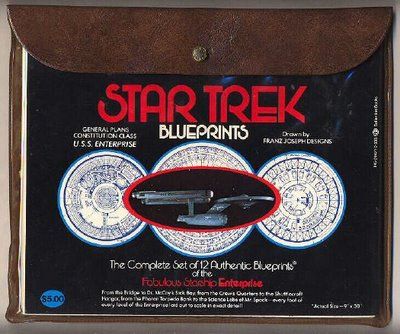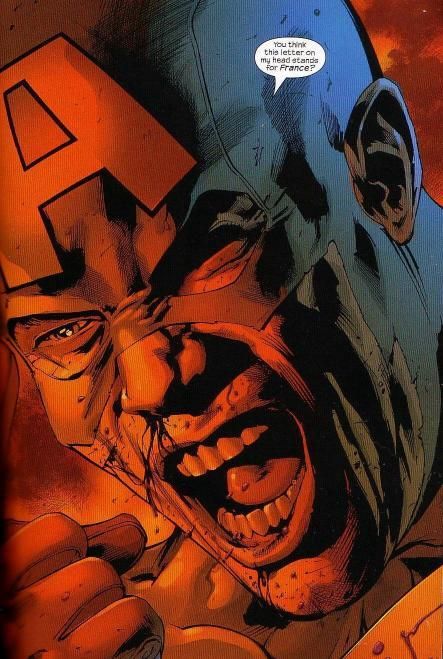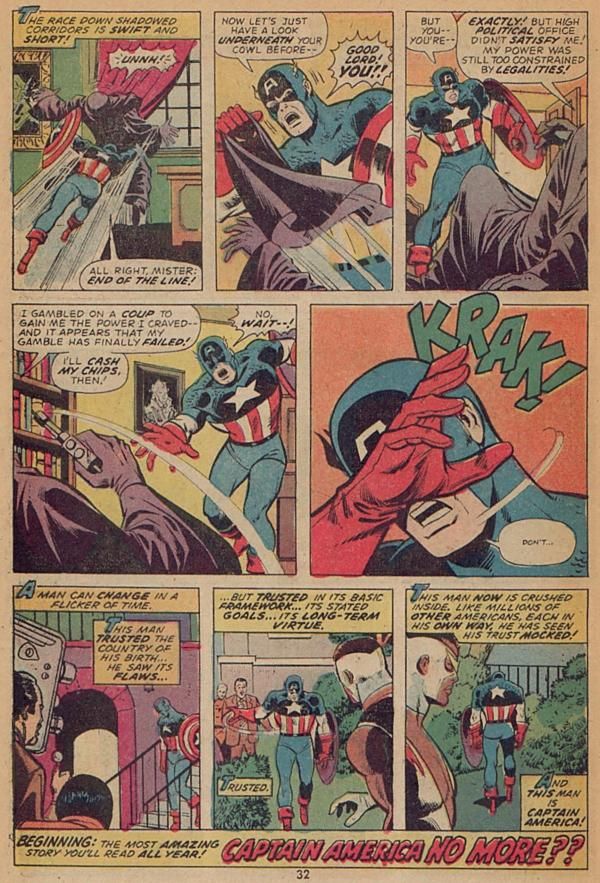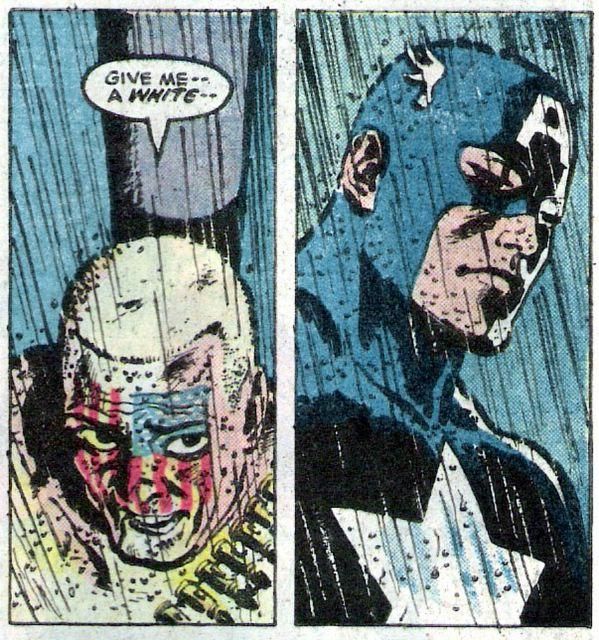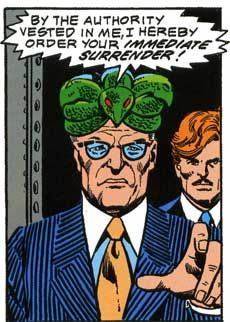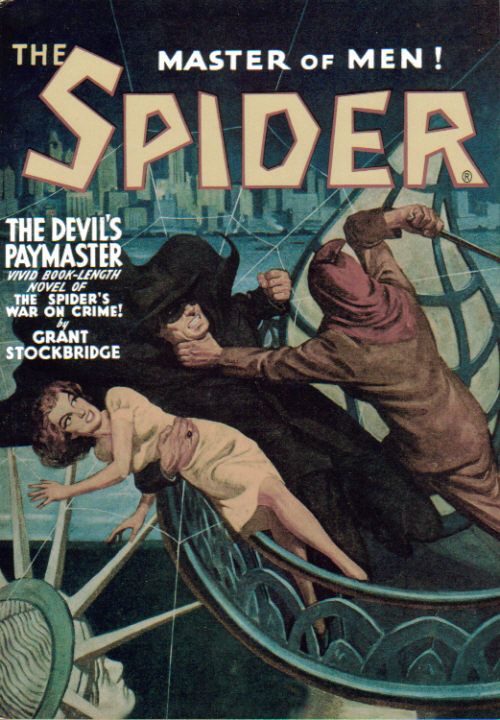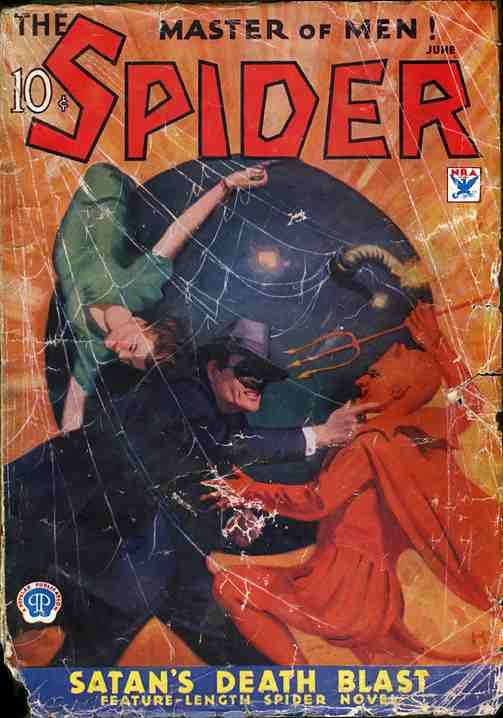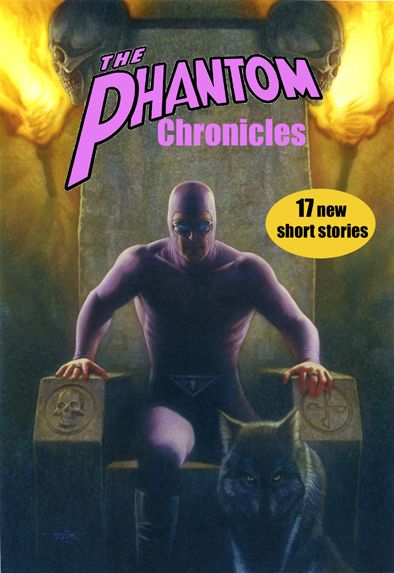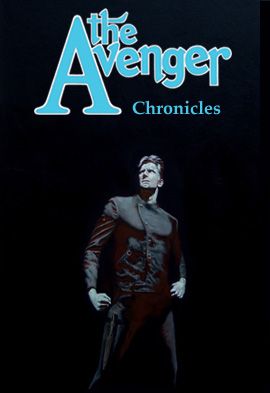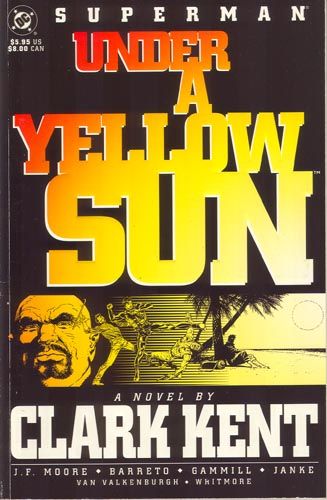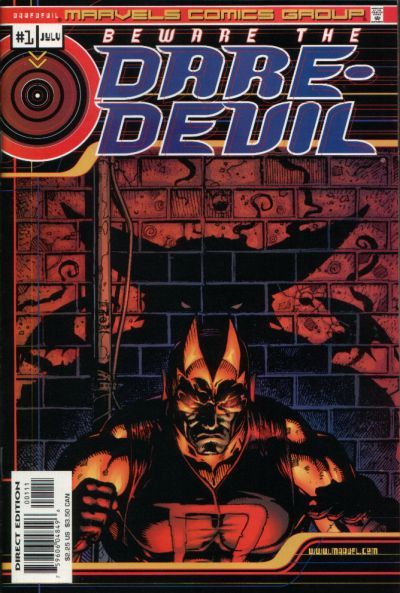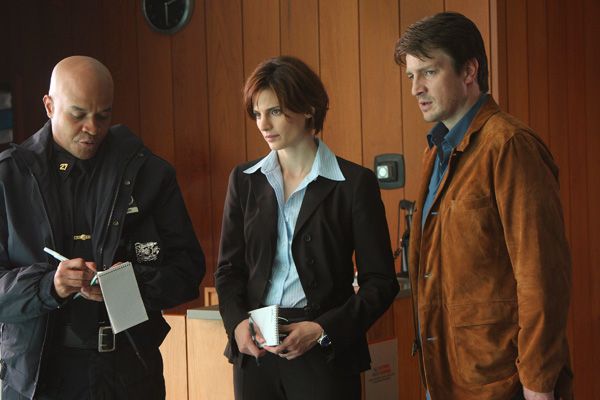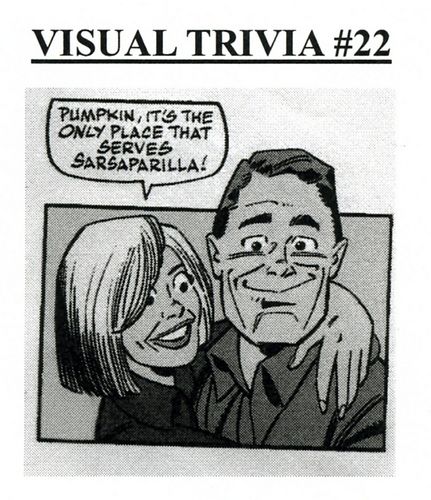Yes, it's that time again. Not a column, just a bunch of little column-ettes. A couple of Captain America observations, some pulp stuff, and a pair of puzzles -- one literary, one visual. Enjoy.
*
You know, I saw all the outrage going around the net about that Captain America story where a character makes a rude assessment about a group of people and the real-life group got really pissed off... except, the way I heard the story, the writer and editor in question just snorted and said, "Dude. It was just a comment by a fictional character in a made-up story and it was completely in character for him to say that. Get over yourselves."
...oh wait, that was the Ultimate version. My bad.
*
Seriously, though, Mr. Quesada, if you're going to be handing out apologies to every real-life person who's ever been maligned in comic-book stories featuring Captain America, well...
...the Nixon family would like a word.
And the Pentagon.
And Nelson Rockefeller.
It seems like you might be setting a bad precedent, is all. Just saying.
*
Oh, and speaking of things that are completely politically incorrect and possibly offensive....
The Spider was a pulp series that is almost completely without redeeming literary qualities. The Spider stories are overflowing with horrible violence, lurid and perverted villainy, spiced with the occasional gratuitous scene of torture or perhaps near-rape of helpless damsels in distress. Against this backdrop of psychotic terror and urban menace, millionaire Richard Wentworth fought crime by donning a cape, fright wig, fangs and a slouch hat, and shooting up the underworld with a gleeful abandon that would seem dangerously insane in any other context. He was the only pulp hero that actually had to have his appearance toned down for his cover paintings.
It's the pulp series for those folks that think the Avenger was a sissy and the Shadow didn't go nearly far enough. In the paranoiac nightmare world of the Spider, though, leaving the streets strewn with dead crooks' bodies just seems like common sense. It's all about context. Most of the novels were written by a man named Norvell Page (under the house name "Grant Stockbridge") and each one feels like he pounded it out during a crazed amphetamine binge over the course of a long weekend.
Which is really what I love about them.
I've always had a soft spot for the Spider pulps, precisely because of the extreme nature of the stories and the borderline insanity of the Spider himself. There's just something so wonderfully pulpy about the whole thing, they're books that are very much not good for you. Sometimes you really just want to settle in with a shoot-em-up that isn't encumbered with any of that pesky dithering about rights or due process, written at a pace that's too breathless for finesse.
So it was with great pleasure that I stumbled across The Spider Chronicles, an anthology from Moonstone Books a couple of years back that invited a number of adventure writers from comics and elsewhere to channel their own inner Norvell Page for a Spider story, resulting in a collection of tales that are each guaranteed to be a hell-for-leather good time that has nothing to do with lit'ry merit.
Writers ranging from Chuck Dixon to Steve Englehart to Will Murray dive into the Spider's deranged carnival of urban chaos to give us stories with awesomely lurid titles like "City of the Melting Dead," "Death Reign of the Zombie Queen," "The Mad Gasser of Mantoon," "More Souls for Hell," and -- possibly my favorite -- "The Devil's Druggist."
Each seems determined to outdo the next in sheer gleeful mayhem. It's a wonderful love letter to the original pulp series and the illustrations by Tom Floyd are a nice bonus. I may have to check out Moonstone's other anthology projects now -- if the Phantom and the Avenger ones, in particular, are done with this degree of care and affection, then that definitely moves them to the must-have list.
*
And speaking of tribute books and such....
There is a weird little sub-genre of fiction that probably very few people at all pay any kind of attention to other than collectible dealers and others that make a hobby of this kind of cultural kitsch, but I've always liked it because it's just so... odd. At its worst it's just a dumb novelty act but at its best you get something really unique and fun.
I am speaking of the real book by the fake author. Someone takes a fictional work referred to in a story somewhere-- a tale about a novelist that mentions the titles of his books, say-- and endeavors to reverse-engineer a real work from that reference.
Now, with this process at its worst you get something silly like Star Trek Blueprints, which really was just a naked cash grab.
But at its best-- I'm thinking of stuff like Philip Jose Farmer's Venus on the Half-Shell purportedly written by Kurt Vonnegut's author character "Kilgore Trout," or the Twin Peaks books that came out during the time that television series was on the air-- it's always intrigued me. In cases like that, where you can get an author of talent that's genuinely a fan of the source material being homaged (like with Farmer's parody of Vonnegut) then there's a synergy taking place that gives you a really amazing hybrid... something that's sort of fan-fiction and sort of meta-fiction, with an added something that's really hard to categorize.
It's a stunt that's even been tried in comics a couple of times with some small success.
Well, I liked Under A Yellow Sun quite a bit, anyway. Your mileage may vary.
The point of all this is that one of these efforts crossed my path recently and-- against all expectations-- I enjoyed it enormously. I'm speaking of Heat Wave, by "Richard Castle."
My wife and I are very fond of Castle, the television series. So when I had a chance to scoop up this book cheap, I did, figuring it would be fun to see what it was all about and that Julie would enjoy it. I bought the thing, in other words, on a lark, in the same spirit one buys a funny postcard or something like that. What I absolutely was not expecting, and was very pleasantly surprised and delighted to see, was that it actually is a pretty fair mystery novel on its own.
I love mystery and suspense fiction as much as I love comics, maybe more, and I can tell you that it is a genre that presents extraordinary challenges to a writer in its need to play by the rules. Sort of like, say, a sonnet. You can set out to write a poem and doing that well is hard enough -- but if you additionally decide that your poem will be a sonnet, well, then you also have to make sure that you have the right number of lines and the proper cadence and so on and so on. Because a sonnet has rules.
Writing mysteries is like that. There are rules for writing a proper mystery in addition to just trying to do a good job on the novel itself, and many talented and intelligent writers have run afoul of the rigorous demands that the genre can place on one's creativity.... in particular, the need for a writer to 'play fair.' You have to plant clues. You have to keep it plausible. You have to challenge and mislead the reader but you can never actually lie to the reader. And so on.
What impressed me about Heat Wave was the extraordinary tightrope walk taking place between the need for the book to be what it was allegedly presented as -- a hard-hitting police procedural, the debut installment of Richard Castle's hot new "Nikki Heat" series of novels-- and for it to have enough mystery chops to actually pull that off... and at the same time, being believable to those of us that watch the show as a book that is actually the product of Richard Castle's imagination, i.e., 'inspired by' the events taking place on the television show.
Now, I won't lie to you. If you don't watch the show, well, what you'll get is a moderately entertaining mystery novel about a sexy female homicide cop in the NYPD. It's okay but nothing to write home about.
But if you are a fan of the show then this book is vastly entertaining, especially since the half-dozen or so quotes and scenarios from this heretofore nonexistent novel that have been shown on the television series to date are all present, from the dedication on throughout. A lot of my reaction to this book was delighted awe that this was actually the case -- that all the quotes from this manuscript and references to the character of Nikki Heat were intact just as they'd been presented over two years of Castle the television series -- even though the book itself didn't exist at the time those quotes and references were created. And it still works as a novel. That just makes my inner book nerd giggle with glee.
The book is even fun to have just as an artifact. It's a classy-looking hardcover edition, with a ginned-up quote from James Patterson (who has cameo'd on the series as well) on the front cover, a fictional bio of Richard Castle on the jacket flap, and of course a smiling Nathan Fillion on the back cover author photo. (I think they really missed a bet not using one of the photos from the publicity shoot depicted on an episode earlier this season, but that probably would have been too over-the-top.)
The actual author is never named, though most Castle fans are saying it's Andrew Marlowe, the series creator. (If it is, he's not talking -- in interviews he just looks shocked and says, "What do you mean? It says right on the cover, Richard Castle wrote it!") Personally, my first thought was that it was Max Allan Collins -- the story kind of has the same vibe as his Mallory novels. I know that Mr. Collins has done a fair number of TV and movie tie-in books, and it occurred to me that he'd probably have been really conscientious about getting the mystery part of this mystery novel right... but then I changed my mind and decided that it would have had to be Marlowe, there's no one else that would have gotten all those TV-show references and quotes from the book in there so carefully.
Then I thought, no, Andrew Marlowe doesn't have time to write a friggin' novel while he's trying to get 22 episodes of his TV show scripted, produced and aired, it had to've been a hired gun and if it was then Max Allan Collins is the obvious go-to guy for a project like this. I'll probably change my mind again another two or three times between now and the time you read this.
By the way, you don't have to take my word for it, the book itself is excerpted at the show's web site,
here. If you are curious.
*
Speaking of puzzles...
We had another fellow write in to CSBG asking us to identify a comic. A Mr. Mike Peterson asks if anyone can tell him where this came from?
I got nothing. I mean, just eyeballing it I'd think it was done in the early to mid-1960s and it certainly looks a little like it might be one of the early Mad guys, but my hunch is that it's some sort of magazine illo for a syndicated newspaper puzzle page or something. I can't take it further than that general impression -- I've got a fair eye for art styles but not good enough to definitively name the guy that drew this.
Anyone out there have an answer? A suggestion? Anything? Bueller?
*
And that's it, I think, for the bits and pieces. See you next week.

